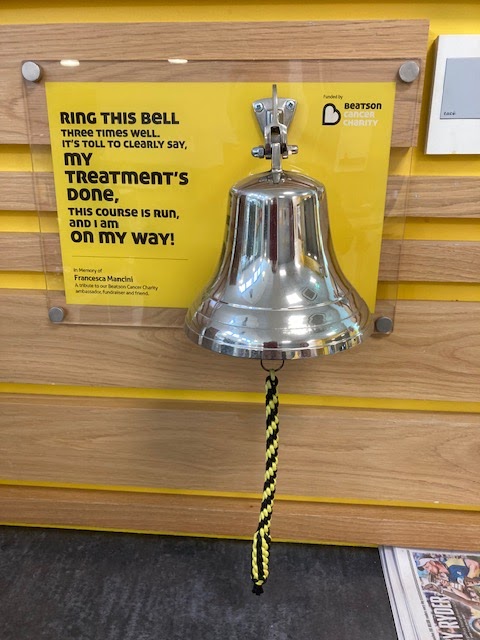For a period of time, I would virtually have no immune system, all my childhood inoculations would be wiped out, and when I was eventually discharged it would be with a compromised immunity. This was just before we were beginning to feel the impact of Covid-19. So, when it hit us I was classified as highly vulnerable and strongly advised not to stray beyond my doorstep.
I don’t think I realised at the time how dangerous those months were for me. Recent events have brought that home. I’ve had coughs and sniffles over the last few years but at the beginning of November it reached a new level. The persistent cough and breathlessness became so bad that eventually I contacted the Beatson cancer help line. That led to an admission to the Assessment Unit where it was discovered that I had picked up a Respiratory Syncytial Virus (RSV). There was nothing much that could be done in the way of treatment except to go home, stay warm, and avoid contact with other people as far as possible. Obviously if things got worse, I would need to be admitted but for the time being yet again it was a case of ‘watch and wait’.
It was disappointing. I had hit another of those bumps that frequent this cancer life. The physical discomfort is bad enough but then come the waves of frustration, irritation, and even anger. And that is followed by the burden of not coping in a way that I think is appropriate for someone who seeks to have his life defined by an awareness of God the Father, the teaching and example of His Son Jesus, and the power of His Holy Spirit.
How many hours have been spent meditating on the Scriptures? How many insights have I gathered from fellow believers going through their worst of times? How many opportunities have there been to take the truths I have gathered and seek to encourage and help others through preaching and counsel? Where now are those moments when an unmistakable Presence has supported me when the darkness was deepest?
It sometimes feels as if all of this has been wiped out as I feel the judder of another ‘bump’. But what if these times come to us to further demonstrate just how personal and powerful God can be in our lives. Stripped to the bone spiritually where is our help, our strength, and our hope? If I were dealing with someone like me in my days of regular pastoral work I would be encouraging her to focus on the constant testimony of believers in Scripture and in the history of the Church that no darkness has ever mastered the light of Christ, that nothing will ever separate us from the love of God, that God in Christ has overcome the suffering and death that threatens to destroy our quality of life.
Still in the grip of the RSV I heard a powerful message from a Welsh preacher on BBC Radio 4’s Sunday worship. He was focused on John 11: 35. Jesus’ response to the death of Lazarus and the effect this had on those who were closest to him:
‘Jesus wept’.
The Son of God felt the pain of corruption and death even as He knew that this was not the end for Lazarus. Holding suffering and hope together is the ultimate challenge for many Christians at a personal level. But the life, death and resurrection of Jesus shows us that despite the pain, the frustration, the despair we are given good reason to hope. God was in Christ angered by disease, disturbed by death, but holding in his heart the ultimate purpose of the coming Kingdom where no darkness would fall. The apostle John’s visions contained one showing the triumph of the Kingdom:
‘He will wipe away every tear from their eyes and death shall be no more.
Neither shall there be mourning or crying or pain anymore,
For the former things have passed away.’ (Revelation 21: 4.)
We will never cease to hit the ‘bumps’ and ask the question why? We see this all through Scripture. Listen to David, Job, Jeremiah. So many others, even the Son of God as He suffered. But drawing near to these supreme witnesses we pray for grace not just to admire them or take comfort from them but to live their way in every circumstance.











